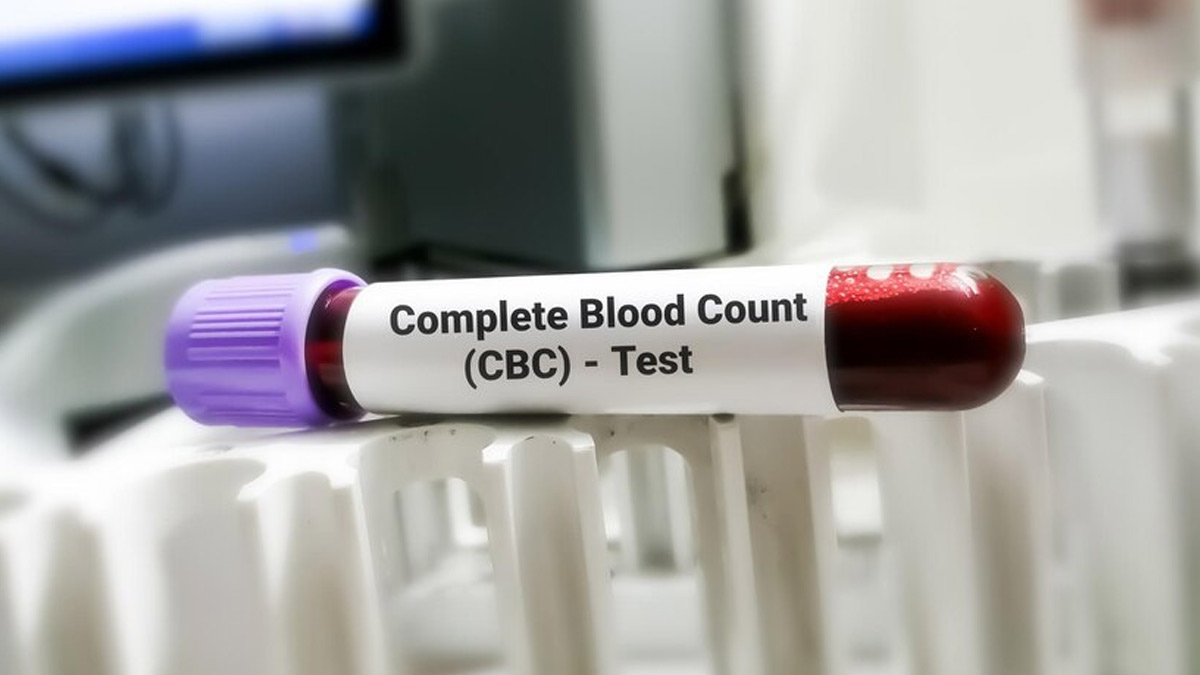
Whether you go for a routine health check-up or are being diagnosed with a particular disease, a doctor is likely to recommend a Complete Blood Count (CBC) test. A CBC is a blood test that checks the level of various cells in the blood, says Dr Sunita Kapoor, Director and Laboratory Head, City X-Ray and Scan Clinic, New Delhi. It is also prescribed for people undergoing treatment for a particular disease, as it helps monitor its effectiveness.
Table of Content:-
However, when it comes to a CBC test, there's more to it than what meets the eye. It covers a myriad of illnesses and helps detect various health issues. In an interaction with the OnlyMyHealth team, Dr Kapoor discusses when exactly you need it and things to do and avoid before getting it.
Also Read: Blood Test Can Predict Dementia 15 Years Before Diagnosis: Study
What Is A Complete Blood Count (CBC) Test?

An article published by StatPearls Publishing suggests that CBC is the most commonly performed laboratory test in medicine and provides information regarding the cells in a person's blood.
It typically measures:
- Red Blood Cells (RBCs)
- White Blood Cells (WBCs)
- Haemoglobin, the oxygen-carrying protein in RBCs
- Haematocrit, the amount of RBCs in the blood
- Platelets, which help blood to clot
According to Dr Kapoor, the test is useful in the diagnosis of a number of illnesses, including leukaemia, anaemia, and blood infections. Additionally, it can be useful in keeping an eye on the health of those who suffer from long-term illnesses like diabetes, Acquired Immunodeficiency Syndrome (AIDS), or cancer.
When Is CBC Test Recommended?

The CBC test helps in assessing your overall health and identifying a variety of diseases.
“Usually, it is prescribed when you have indications of an illness that might impact your blood cells or during routine medical exams," says Dr Kapoor. For instance, if you have fever, exhaustion, or shortness of breath, your doctor could prescribe a CBC. Or if you take any drugs that may impact your blood cells, a CBC can help keep an eye on your health.
Health Issues That Can Be Detected With CBC?
The different types of health issues diagnosed by a CBC test include:
Anaemia: lower-than-normal levels of haemoglobin or red blood cells.
Erythrocytosis: higher than normal levels of red blood cells.
Leukocytosis: high levels of white blood cells, often due to infection or inflammation. Leukopenia: Too few white blood cells, which could indicate a problem with your immune system.
Thrombocytosis: increased platelet count, affecting blood clotting.
Thrombocytopenia: lower than normal levels of platelets, which may lead to bleeding issues.
Dr Kapoor says, “These results can help your doctor diagnose and manage various health conditions. These may indicate any number of medical issues, such as blood disorders, cancer, infections, or adverse drug reactions. To identify the reason, however, your doctor can utilise the information from your CBC as well as your symptoms.”
Also Read: 6 Home Remedies To Increase Platelet Naturally
Preparing For Your Test

There’s no such restriction on your daily diet and activities when it comes to getting a CBC test.
Dr Kapoor says that you can eat and drink as normal before the test if your blood sample is simply being checked for a complete blood count.
However, if your blood sample is being collected for some other tests along with a CBC, you may be required to fast for a specific period of time as needed for further testing. It is therefore crucial to check with your healthcare professional to know what steps you need to take depending on the specific tests.
Also watch this video
How we keep this article up to date:
We work with experts and keep a close eye on the latest in health and wellness. Whenever there is a new research or helpful information, we update our articles with accurate and useful advice.
Current Version